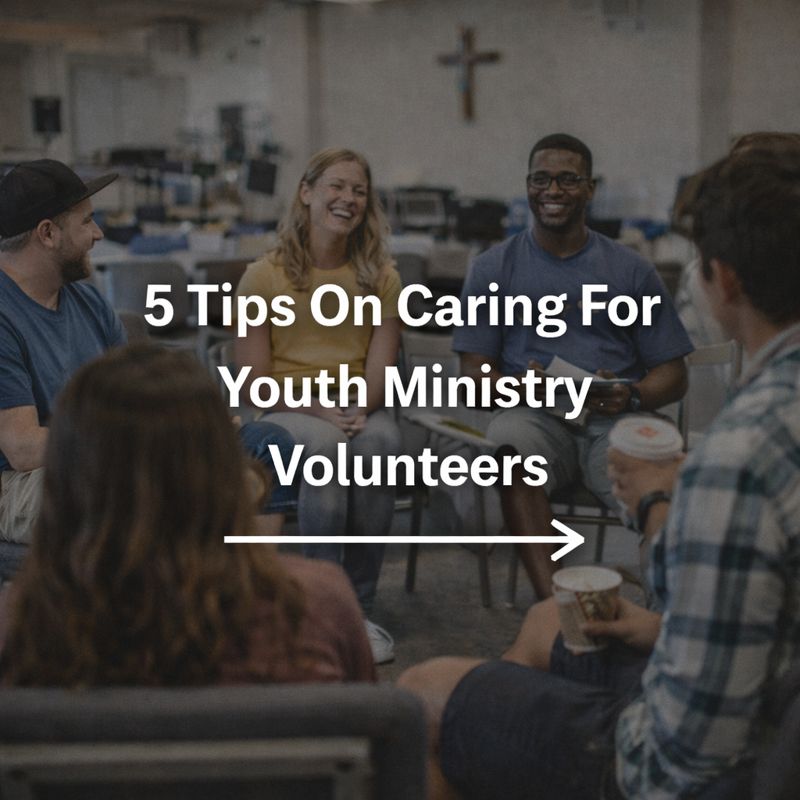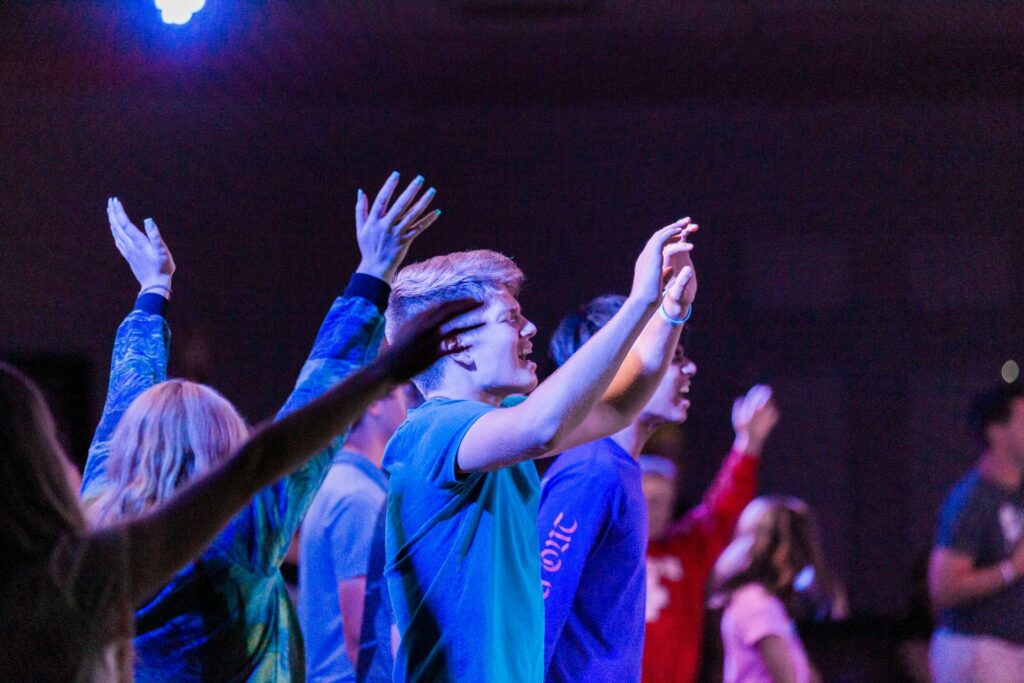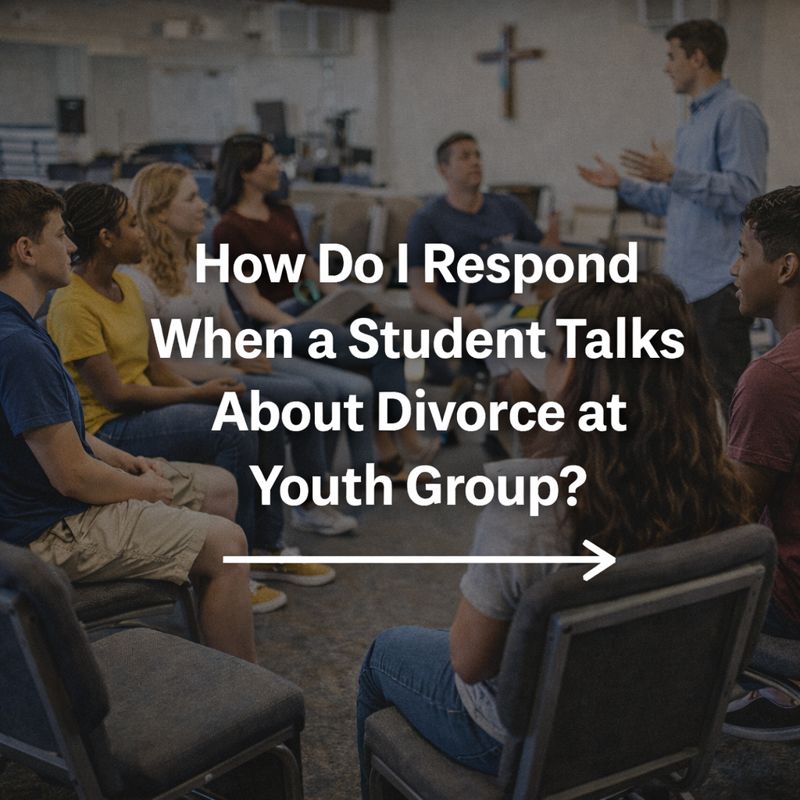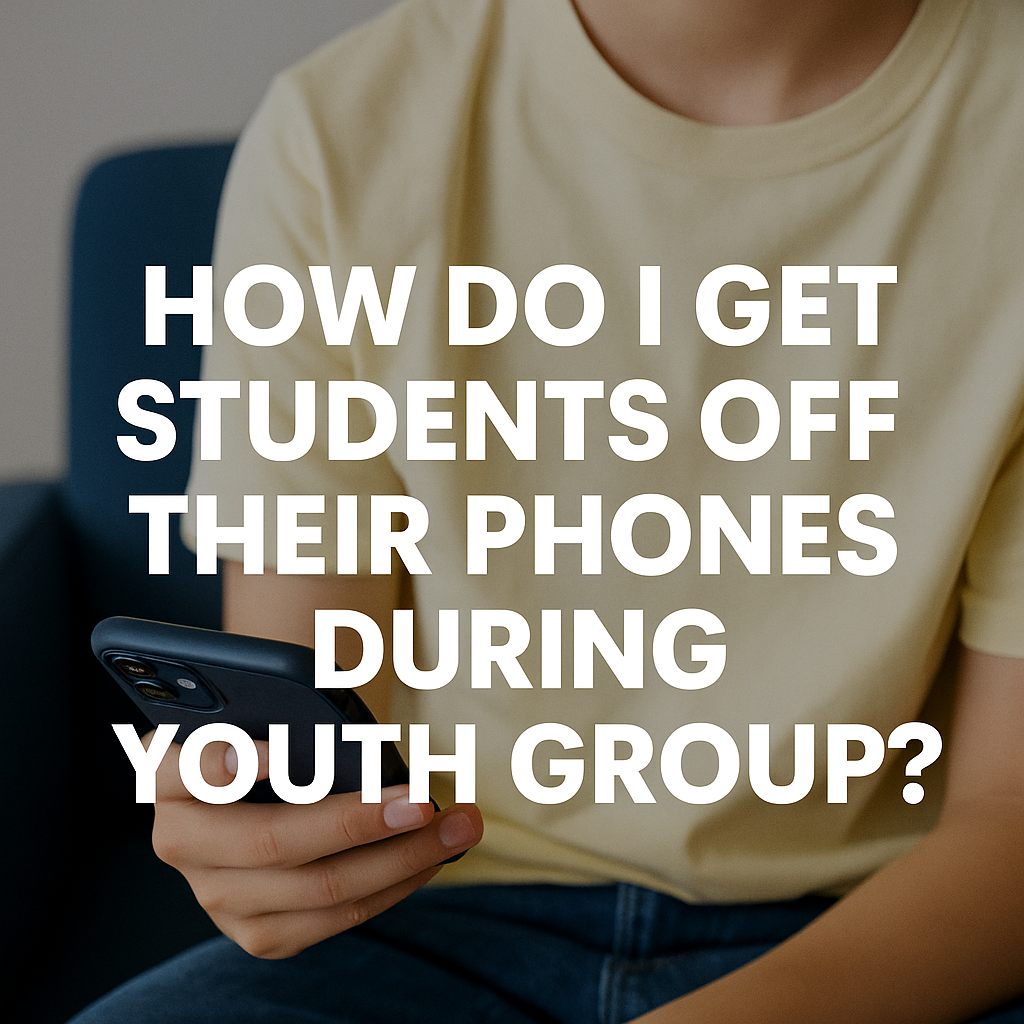
5 Tips On Caring For Youth Ministry Volunteers
It’s a fact: we could not do youth ministry or have a thriving group without our volunteers. Volunteer leaders allow

When your youth group is on the smaller side, it’s easy to feel like you’re missing out. You might wonder where all the energy went or how to build excitement with just a few students. But those smaller numbers are a huge opportunity. With fewer students, you can build closer relationships, have deeper conversations, and create moments that truly stick.
Running a small youth ministry isn’t about trying to seem bigger than you are. It’s about showing students they truly matter, not just by saying it but by how you listen, lead, and care for them each week. With a smaller group, you have more chances to give personal attention, more time to respond to what’s happening in their lives, and more room to build trust. Let’s look at a few ways to make the most of that.
In a smaller group, no one gets lost in the crowd. Your students aren’t just filling seats; they’re a real part of your life, which can be one of your greatest strengths. You don’t need a big room to help grow strong faith. What you need are meaningful relationships that last.
Here are a few ways to build those connections:
Make time for one-on-one check-ins. They don’t have to be formal. Grab a soda after school. Cheer them on at their game. Ask how their week is going and listen.
– Invite students to share their stories. With fewer voices, you can allow everyone to speak without rushing. Use open-ended prompts that speak to real life.
– Follow up on the details. If someone mentions a birthday, a rough patch at home, or a big test coming up, bring it up in the next conversation. It shows you care, and it shows they’re seen.
– Ask more than surface-level questions. Keep learning who your students are, and let this knowledge shape your leadership.
It takes time. Some students might hold back, especially if hurt or ignored. But trust starts to build when they see you showing up repeatedly, and that’s where God goes to work.
If you’ve got three students, teaching like thirty probably won’t land. That’s where designing Bible lessons for a small youth group can be a huge win. Smaller numbers allow you to be flexible, focused, and deeply relevant.
Here are three ways to make your lessons work better for a smaller crowd:
1. Stay open to change. Do you have an activity planned that doesn’t feel right? Toss it. Switch things up with a conversation or something more personal. You’ve got the flexibility, so use it.
2. Ask questions that dig a little deeper. Skip the yes/no stuff and try open-ended questions. Let the students talk more than you do.
3. Hand them the mic. Let them lead part of the session. Ask what they’d talk about if they were the ones teaching. Invite them to close in prayer or bring a verse to kick things off next week.
One youth leader shared how her lessons shifted when a student opened up about feeling anxious. Instead of jumping into the scheduled talk, they spent time in a Psalm, shared personal stories, and prayed for each other. That moment might not have happened in a bigger group, but it made a real difference.
With the right approach, your Bible lessons don’t just fill time. They help shape lives in a meaningful way.
Students who feel unsafe or don’t belong are less likely to open up, engage, or even come back. Small groups are the perfect setting to make belonging a top priority.
Start simple: make it clear that every student in the room matters. That means shutting down sarcasm fast, being consistent about inclusion, and highlighting kindness when you see it. The culture you build in week one will set the tone each time after.
Let your students help shape the group. Have them pick the snacks, the music, or the room’s setup. Ask how they’d like to celebrate birthdays or serve the community. When they have a say, they’re more committed because they don’t just show up; they help create the space.
Leadership is another significant way to grow belonging. Some students might want to try leading prayer. Others might be more comfortable running sound or welcoming newcomers at the door. Every kid has something to offer, and finding that something can be a game-changer.
A youth pastor noticed one student always arrived early. She casually asked him to help set up chairs, which turned into leading prayer and later helping plan a lesson. That spark might have gone unnoticed in a huge group, but the space gave him time to grow, step up, and shine in a smaller one.
Let’s be honest, most small youth groups don’t have a full-time team or unlimited resources. But that doesn’t mean you’re stuck. You can do a lot by making the most of what you already have.
A few ideas to stretch your resources:
– Pick curriculum and materials that scale with your size. Look for tools created with flexibility in mind.
– Run low-cost events like game nights, movie hangouts, or care package projects. These build a connection without draining your budget.
Work with other nearby ministries when it makes sense. You can attend a joint worship night or serve together on a project. This adds variety without losing your ministry’s identity.
– Use your students’ skills. Someone might be great with a camera, love public speaking, or have a heart for organization. Let them influence how things work.
You don’t have to wait for more money or more people. Use what you have and use it well. It’s not the size that matters; it’s the vision.
Just because your youth group is small doesn’t mean the work is less important. Every check-in, every lesson, and every laugh builds something deep and lasting. Growth isn’t always about the numbers. Sometimes it’s a student stepping into leadership, opening up about something they’ve never shared, or simply showing up week after week because they feel safe with you.
Don’t get discouraged if your group isn’t growing as fast as you hoped. The seeds you’re planting are good ones. Your consistency matters. Your creativity matters. Most of all, your care matters. What you’re building is strong, even if you can’t see all the results yet.
You’re doing this for more than just this season. You’re shaping someone’s faith journey, and that’s sacred work. Keep showing up and keep loving well; it all counts.
Ready to deepen your connections with students through creative planning and solid teaching? Whether you’re facilitating small group discussions or looking for ways to better engage your teens, G Shades has you covered. Explore how Bible lessons for a small youth group can be designed to fit the strengths of your space and the hearts of your students. Let’s make the most of each week together, building something that sticks.

It’s a fact: we could not do youth ministry or have a thriving group without our volunteers. Volunteer leaders allow

If you’ve been in youth ministry longer than a few years, you’ve had a student bring up divorce at youth

Every single youth leader has felt this tension before: students on their phones during youth group. You work hard to